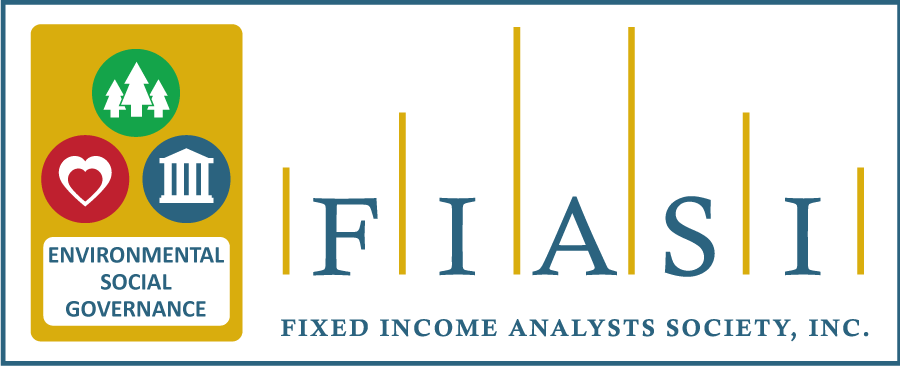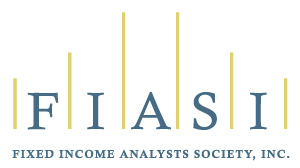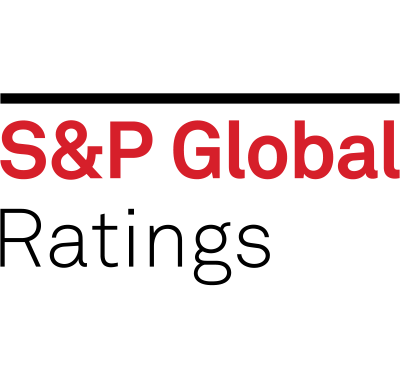Sustainable Finance

Conference Agenda:
- 8:30am -- 9:00am: Registration
- 9:00am -- 9:10am: Welcome Remarks
- Henry Shilling, Director of Research, Sustainable Research and Analysis and FIASI Board Member
- 9:10am -- 9:45am: Keynote Address
- Shiva Rajgopal, Kester & Byrnes Professor, Columbia Business School
- 9:45am -- 10:45am: Panel 1: The State of Sustainable Investing 2024 and Outlook
- Moderator:
- Shaheen Contractor, CFA, ESG Research Associate, Bloomberg LP
- Panelists
- Stephanie M. Doyle, CFA, Credit Portfolio Manager, JP Morgan Asset Management
- Jamison Friedland, Sustainability Analyst, AXA Investment Managers
- Amy Levine, CFA, Senior Vice President, Director of ESG, Shenkman Capital Management, Inc.
- Moderator:
- 10:45am -- 11:00am: Break
- 11:00am -- 12:00pm: Panel 2: Sustainable Bonds: Green, Social, Sustainability and Sustainability-Linked Bonds
- Moderator:
- Henry Shilling, Director of Research, Sustainable Research and Analysis and FIASI Board Member
- Panelists:
- Marcy Block, Managing Director, Global Head of ESG Ratings, Sustainable Fitch
- Matt Kuchtyak, Vice President – Sustainable Finance, Moody’s Ratings
- Stephen M. Liberatore, CFA, Senior Managing Director, Head of ESG/Impact, Global Fixed Income, Nuveen
- Joshua Linder, CFA, Senior Credit Analyst, Fixed Income, APG Asset Management USA, Inc.
- Heike Reichelt, Head of Investor Relations and Sustainable Finance, World Bank Treasury
- Moderator:
- 12:00pm -- 12:30pm: Fordham / FIASI Sustainable Finance in Fixed Income Research Competition
- Announcement of Award Winners
- Sris Chatterjee, Gabelli Chair in Global Security Analysis Finance and Business Economics
- Amy Levine, CFA, Senior Vice President, Director of ESG, Shenkman Capital Management, Inc.
- Stephen M. Liberatore, CFA, Senior Managing Director, Head of ESG/Impact, Global Fixed Income, Nuveen
- Announcement of Award Winners
- 12:30pm -- 1:30pm: Lunch & Networking
- One flight down on the garden level dining room
- 1:30pm -- 2:00pm: Post Lunch Keynote Address
- Diana Glassman, Director-Engagement, EOS at Federated Hermes
- 2:00pm -- 3:00pm: Panel 3: Divestment Developments
- Moderator:
- Geeta Kapadia, CFA, Chief Investment Officer, Fordham University
- Panelists:
- Susanna Gibbons, CFA, Managing Director, Carlson Funds Enterprise, University of Minnesota
- Bhakti Mirchandani, Managing Director, Responsible Investing at Trinity Church Wall Street
- Walter Prahl, Ph.D., Professor, Fordham University
- Moderator:
- 3:00pm -- 3:15pm: Break
- 3:15pm -- 4:15pm: Panel 4: Investment Company Rulemaking and Corporate Climate Reporting and Disclosure
- Moderator:
- Alexander Dill, Assistant Adjunct Professor, Master of Financial Engineering Program, UCLA Anderson School of Management
- Panelists:
- Richard Freund, Associate Director, CDP Capital Markets, CDP North America
- Michael Mencher, Special Counsel, Cooley LLP
- Anya Solovieva, Director, Global Commercial Product Strategy, Climate Solutions, Sustainalytics
- Diana Stoltzfus, National Quality Organization Partner, PricewaterhouseCoopers
- Moderator:
- 4:15pm -- 5:15pm: Panel 5: Private Assets/Private Credit
- Moderator:
- Michael Ferguson, CFA, Americas Analytical Manager for the Sustainable Finance, S&P Global Ratings
- Panelist:
- Jeff Cohen, CAIA, Managing Director, Head of ESG & Sustainability, Oak Hill Advisors
- Matt Kaczmarek, Head of Private Debt Sustainable Investing, BlackRock
- Abdulla Zaid, Vice President – Private Capital Research, MSCI
- Moderator:
- 5:15pm -- 5:30pm: Concluding Remarks
- Erin Lyons, Co-President, CreditSights
- 5:30pm -- 6:30pm: Cocktails, Refreshments & Networking
Register Now.
Current discounted prices are:
| Attending Live | Attending via Webinar | |
| Non-Members: $90 | Non-Members: $40 | |
| Members: $45 | Members: $20 |
To register click below:
| Attending Live | Attending via Webinar |
We also wish to acknowledge the roll of the following Sustainable Finance in Fixed Income Research Compeition reveiw Committee Members:
- Sris Chatterjee, Gabelli Chair in Global Security Analysis Finance and Business Economics
- John Finnerty, Ph.D., Professor, Finance and Business Economics
- Mark Howard, CFA, Managing Director and Senior Multi-Asset Specialist, BNP Paribas
- Amy Levine, CFA, Director of ESG at Shenkman Capital Management
- Stephen Liberatore, CFA, Senior Managing Director, Head of ESG/Impact, Global Fixed Income at Nuveen
- Henry Shilling, Director of Research, Sustainable Research and Analysis LLC
- Mariarosa Verde, Senior Vice President and Group Credit Officer for the Americas Corporate Finance team, Moody’s Investors Service
- An Yan, The Robert Bendheim Chair Professor in Economics and Financial Policy, Professor of Finance and Area Chair, Finance and Business Economics, Co-Director of the Center for Research in Contemporary Finance

Sustainable finance refers to the process of taking environmental, social and governance (ESG) considerations into account when making investment decisions in the financial sector, leading to increased long-term investments into sustainable economic activities and projects.
Economists estimate that transitioning the economy to clean energy, zero carbon transportation, sustainable cement and climate smart agriculture will require about $4 trillion a year in investments. Sustainable finance, which involves governments, investors, corporates, and other financial institutions, such as banks, insurance companies, asset management firms, asset owners, stock exchanges as well as other stakeholders, is an important pathway to help get us reach this objective.
Sustainable finance has gained significant traction over the last few years and one way to quantify that is by looking at the sustainable investing space via a few measures.
- Number of signatories to the UN supported Principles for Responsible Investment (PRI), a network launched in 2006 to set forth an aspirational set of six best practices for responsible investment, including the integration of ESG in the investment decision making process. According to the PRI, there are now some 4,000 signatories worldwide consisting of asset owners, investment managers and service providers. These entities account for about $120 trillion in assets under management.
- According to data compiled by the Global Sustainable Investment Alliance, $35.3 trillion in assets as of 2020 are managed globally in accordance with one or more sustainable investing approaches or strategies. This represents about 36% of global institutional assets under management, or about one in three dollars.
- Sustainable debt market instruments. Currently, the global outstanding amount of sustainability labeled debt stands at $2.5 trillion, with volumes in 2021 exceeding $1 trillion dollars. This includes, for example, green bonds, social bonds, sustainable bonds, blue bonds, SDG bonds gender equality bonds and other types of sustainable bonds.
At FIASI since 2015, we have been exploring sustainable finance trends and developments and focusing, in particular, on their implications for the fixed income markets. We have been doing this through in-person and virtual presentations, panel discussions, author interviews and periodic conferences, including our one-to-two-day annual ESG conferences. More recently, FIASI in collaboration with Fordham University’s Center for Research in Contemporary Finance and the O’Shea Center for Credit Analysis and Investment have been sponsoring a student research competition on environmental, social and governance focused investments and innovations in sustainable finance. This co-branded competition invites undergraduate and graduate students to submit their ongoing original research on the topic of sustainable finance in fixed income or related markets. In line with our years long exploration of sustainable finance trends and developments, the purpose of the competition is to raise awareness of environmental, social and governance-based principles of investing in the fixed income markets as a research area, address challenges and opportunities associated with the integration of ESG in fixed income, promote the further development of sustainable finance in the design of fixed income investments as well as corporate innovations, and to gain more visibility for and encourage conversations among students, academics, as well as practitioners.
Dec 2022

April 13, 2023
Andrew Auslander, CFA, FRM, NACD.DC
Henry Shilling, a board member of FIASI (Fixed Income Analysts Society, Inc.) and the founder of Sustainable Research and Analysis LLC and I had a chance to speak with John Finnerty, Professor of Finance at Fordham University and founder of Finnerty Economic Consulting. Professor Finnerty is completing a book about how businesses can manage their climate change risk exposure. Henry and FIASI colleagues have organized a fixed income-oriented full day event, Sustainable Finance in Fixed Income – Risks and Opportunities in 2023, which will be held at the McNally Amphitheater , Fordham University on April 20, 2023. Professor Finnerty will be moderating an energy transition panel with experts from S&P Global, Fitch Ratings, Schroders and MSCI at this event. To sign up, please go to https://www.fiasi.org/sustainable-finance/esg-2023.
John, the 2023 Economic Report to President Biden warns of economic, financial, and social risks to the U.S. economy due to climate change. Can you comment on these risks?
John: The economic report to the President demonstrates that climate risk is a major part of modern risk management. When analyzing the impact of climate change on an entity’s credit, fixed income investors should analyze the following components of climate-related risk: Physical risk due to climate change, transition risk, disclosure risk, legal risk and reputational risk. Credit analysts should also consider the business opportunities to which climate change will give rise and assess how a business entity’s ability to pursue such opportunities might enhance the entity’s credit.
Transition risk is a big risk for producers in certain industries, i.e., cement and fossil fuel producers, as the cost to migrate from climate polluters that are low-cost providers to efficient producers could run in the billions of dollars. Disclosure risk is also important as the SEC proposed disclosure rules in response to what institutions and investors want to know: Comprehensive (scope 1, scope 2, and scope 3 emissions), comparable across companies, industry-specific, and require full disclosure in SEC filings to make securities issuers accountable. Various interested entities, including, for example, the Plaintiffs’ Bar and NGOs, will be watching these disclosures closely and any perceived defects could lead to legal and reputational risk.
In what way, if any, are the findings set out in these reports likely to change the way analysts account for transition and physical risks in their equity valuations and bond risks?
John: Credit analysis is likely to become more granular. While climate change contributes to systemic risk, when individual companies are evaluated for both physical risk and transition risk due to climate change the issues are largely idiosyncratic (about 75% to 95% according to recent research). Careful credit analysis requires a lot more than just considering a few overall ESG ratings. A deeper entity-specific credit analysis is required.
John, Can you please provide additional comments on the SEC’s proposed rules for climate related disclosures by public companies?
John: It is important that the disclosures be comparable across companies. Hopefully, the SEC will provide templates for the reporting companies that will allow analysts to compare companies more easily in the same industry for climate change factors. Ideally, these templates should be industry specific as a manufacturing company has a very different profile from a financial services company. It is also important that these disclosures become part of a publicly listed company’s 10-K and 10-Q filings so the information is credible and can be relied upon.
What about disclosures for municipal entities?
John: Municipal climate-related disclosure can also be improved. But the disclosure standards will be different because government entities are unlike commercial entities. Nevertheless, the same basic principles I articulated in answering the previous questions should still apply.
I look forward to hearing more about sustainable issues at the conference. Bob Litterman, Ph.D. will be the keynote speaker at the conference, addressing climate risk management and the newly launched Kepos Carbon Barometer. There will also be an in-depth discussion of the economic impact of the Inflation Reduction Act (IRA) of 2022. To sign up for the this can’t miss event, please go to https://www.fiasi.org/sustainable-finance/esg-2023.
Andrew Auslander is the founder of Agile Financial LLC which provides financial consulting and expert witness services. He provides risk management, credit infrastructure and valuation services.

Conference Agenda:
- 8:30am -- 9:00am: Registration
- 9:00am -- 9:10am: Welcome Remarks
- Henry Shilling, Director of Research, Sustainable Research and Analysis and FIASI Board Member
- 9:10am -- 9:45am: Keynote Speaker
- Robert Litterman, Ph.D. Founding Partner & Chairman of Risk Committee, Kepos Capital
- 9:45am -- 10:45am: Relevance of Companies’ Energy Transition Plans to Credit Analysis: Risks and Opportunities
- Moderator:
- John D. Finnerty, Ph. D., Professor of Finance at Fordham University’s Gabelli School of Business
- Panelists
- Michael Ferguson, CFA, CPA, CAIA, CFE, Americas Team Leader, Sustainable Finance, S&P Global
- Alex Griffiths, CA, Managing Director, Head of EMEA Corporate Ratings, Fitch Ratings
- David Knutson, CFA, FRM, CMT, Head of US Fixed Income Product Management, Schroders
- Michael Ridley, Ph.D. IMC, Head of Fixed Income ESG & Climate Research, MSCI
- Moderator:
- 10:45am -- 11:00am: Break
- 11:00am -- 12:00pm: The Economic and Investment Impacts of the Inflation Reduction Act (IRA) of 2022
- Moderator:
- Stanislas Rouyer, Financial sector and climate risk analyst, credit research leader
- Panelists
- Ravina Advani, Managing Director & Group Head of Energy, Natural Resources & Renewables, BNP Paribas
- David Burton, JD, Tax Partner, Norton Rose Fulbright
- Stephanie Dontas, CFA, Credit Portfolio Manager, J.P. Morgan Chase
- Alexa Gordon, Vice President, Portfolio Management, Head of ESG for Municipal Fixed Income, Goldman Sachs
- Moderator:
- 12:00pm -- 12:15pm: Fordham / FIASI Research Competition Announcement of Winners
- Lerzan Aksoy, Ph.D., Dean & Professor of Marketing, Gabelli School of Business, Fordham University
- 12:15pm -- 1:15pm: Lunch & Networking
- 1:15pm -- 1:45pm: Special Guest Speaker on European Union Regulations
- Magdalena Kuper, Ph.D., Head of Sustainability, Vice President Legal, German Investment Funds Association BVI
- 1:45pm -- 2:45pm: What are the Implications of Reforming the World Bank and IMF Mandates?
- Moderator:
- Tom Byrne, President & CEO, Korea Society
- Panelists:
- Edward Fitzpatrick, III, CFA, Managing Director, Portfolio Manager, Head of US Rates, J. P. Morgan
- Renzo Merino, Vice-President, Senior Analyst, Moody's Investor Service
- Emily Slater, Executive Director, Bretton Woods Committee
- Moderator:
- 2:45pm -- 3:00pm: Break
- 3:00pm -- 4:00pm: Sustainable Finance Debt Instruments: Will Issuance Pass the $1 Trillion Level in 2023?
- Moderator:
- Caroline Flammer, Ph.D., Professor of International and Public Affairs and of Climate at Columbia University
- Panelists:
- Meredith Chiampa, North American Head of ESG, Global Markets, Citi Global Markets
- Ramzi Issa, Managing Director, Global Head of Credit Investor Products Structuring, Credit Suisse
- Stephen Liberatore, CFA, Lead PM for ESG Fixed Income Strategies, Nuveen
- Moderator:
- 4:00pm -- 4:15pm: Closing Remarks
- Monica Aggarwal, CFA, President FIASI and Managing Director, Fitch Ratings

Full Press Release:
Third Annual Research Competition
Call for Student Research Papers on Corporate Social Responsibility, ESG Investing in Fixed Income and Sustainable Finance
The Fixed Income Analysts Society, Inc. (FIASI) in collaboration with Fordham University’s Center for Research in Contemporary Finance and the O’Shea Center for Credit Analysis and Investment are inviting research applications for the Third Annual FIASI-Gabelli School Student Research Competition on environmental, social and governance (ESG) focused investments and innovations in sustainable finance. This co-branded competition invites undergraduate and graduate students to submit their ongoing original research on the topic of sustainable finance in fixed income or related markets. Although the primary focus of this competition is to encourage student research on sustainable finance and ESG in the fixed income markets, research papers in related markets but still relevant for fixed income will also be accepted. The purpose of the competition is to raise awareness of environmental, social and governance-based principles of investing in the fixed income markets as a research area, address challenges and opportunities associated with the integration of ESG in fixed income, promote the further development of sustainable finance in the design of fixed income investments as well as corporate innovations, and to gain more visibility for and encourage conversations among students, academics, as well as practitioners.
Learn More
View promotional video (short)
View promotional video (long)
Corporate Sustaining Members
Moody's Credit Outlook
Moody's Credit Outlook report is available here. Published Monday and Thursday mornings, Moody's Credit Outlook provides you with the credit implications of current events.








